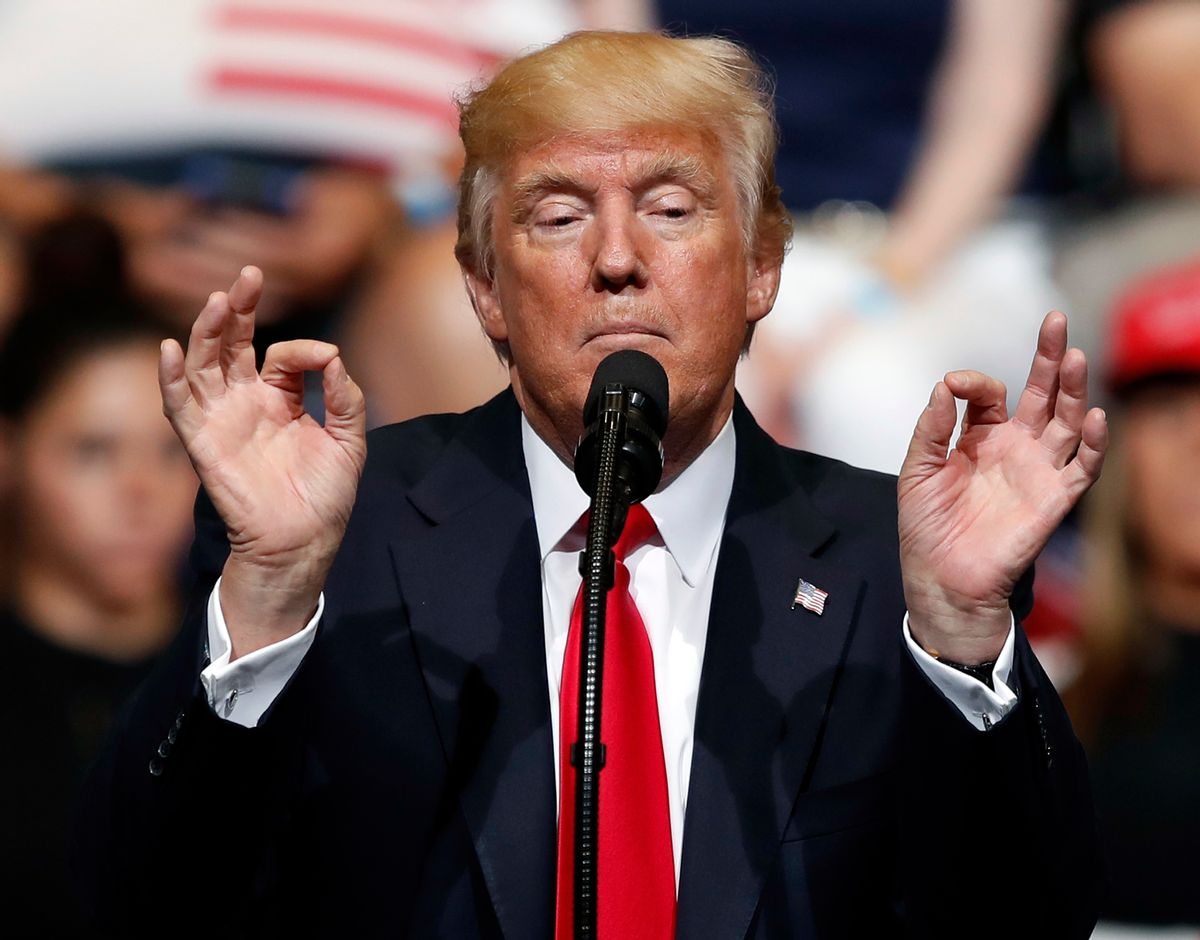President Donald Trump is lashing back against recent reports that he was minimally engaged with the process of passing a Senate health care bill.
The "false story" from The New York Times being denounced by Trump claimed that, prior to a Tuesday meeting at the White House, he'd only met with a few senators. Trump reached out to more conservative senators who oppose the bill, including Ted Cruz of Texas, Mike Lee of Utah and Rand Paul of Kentucky, the Times reported.
This same story claims that chief strategist Steve Bannon and chief of staff Reince Priebus, despite playing major roles in passing the House health care bill, have had their influence significantly reduced for the Senate version. Instead the responsibility for persuading senators has been left to Vice President Mike Pence, who Senate Republicans indicated they'd rather work with.
Trump's decision to target Republican Sen. Dean Heller of Nevada also ruffled feathers among Senate leadership, according to Politico. Senate Majority Leader Mitch McConnell of Kentucky was "infuriated" by a $1 million ad buy from America First Policies, and "privately fumed that it would make it harder to get Heller’s support for the legislation." He had to reach directly to Trump to stop. According to the Times, Trump "laughed good-naturedly at the complaint [from McConnell] and signaled that he had received the message."
There's a growing sense among Senate Republicans that the White House's ineptitude is causing them serious political headaches. Considering that McConnell has recently had to announce a surprise delay on a health care vote because he didn't have the votes to pass the current bill, the dissatisfaction with Trump only further weakens a Republican Party that should be flourishing due its control of all three branches of the federal government.

Shares